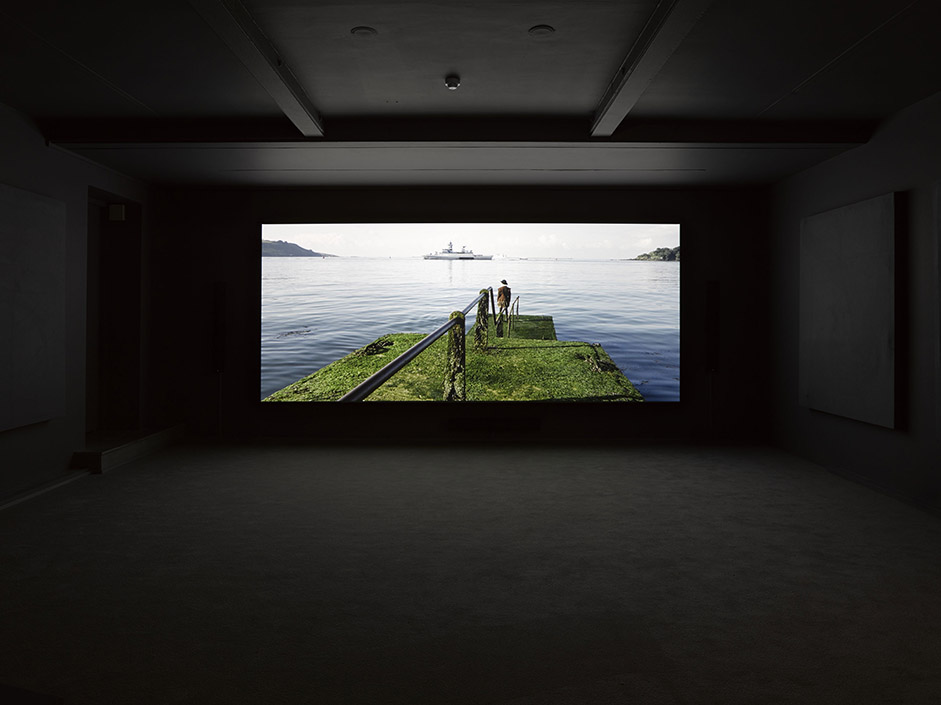
I was deeply moved by John Akomfrah’s video work Auto Da Fe [Acts of Faith] showing at Lisson Gallery in March 2016.
The Ghanaian born British artist is acclaimed as an artist, curator and documentary film-maker and has “secured a reputation as one of the UK’s most pioneering film-makers. The 58-year- old’s poetic works have grappled with race, identity and post-colonial attitudes for over three decades… In 1982 he formed the Black Audio Film Collective, one of the first groups to challenge how the black British community were represented on screen and in the media.” Hannah Ellis Peterson, the Guardian, 7 January 2016.
Akomfrah’s awareness of politics and racial identity began at birth. His parents were heavily involved in the anti-colonial movement in Ghana and engaged in the struggle that led to the coup in the 1960s when his family was forced to flee Ghana in fear of his mother’s life.
The mood that greeted the Akmofrah family in London was one of discontent. The first major influx of migrant workers to England was from Jamaica in 1948 when jobs were short in the Caribbean following the Second World War and Britain required rebuilding after the Blitz. By the 1960s many more immigrants of Asian and African descent had arrived and the atmosphere was tense with animosity. As ever, the question of employment at a time of lack caused conflict. Landing in London from Africa when Britain was struggling to come to terms with multiculturalism and immigration cannot have been easy.
The family’s arrival coincided with the Conservative minister Enoch Powell’s 1968 so-called ‘Rivers of Blood’ speech in which he addressed issues of immigration by saying “as I look ahead I am filled with foreboding, like the Roman I seem to see ‘the River Tiber foaming with much blood’” and reflects contemporary public sentiment “the sense of alarm and of resentment lie not with the immigrant population but with those among whom they have come.” Enoch Powell, address to the General Meeting of the West Midlands Area Conservative Political Centre, 20 th April 1968
It is not surprising that John Akomfrah has long been a champion of racial equality. The atmosphere of fear and mistrust surrounding immigration in 1960s Britain has strong parallels with the current situation in Europe. Auto Da Fe is a response to this, addressing the subject both intelligently and gracefully.
The two-channel video highlights the role religious migration has played in the development of the modern world by weaving together stories from eight different migrations. The 1654 migration of Sephardic Jews from Catholic Brazil, the Huguenots in 18 th Century Brittany and the present day migrations of Christians from Mali and Iraq all feature.
The film is composed of gorgeous panoramic shots of nature, juxtaposed with decaying colonial architecture, slow moving portraits in contemporary clothing, rich fabrics, sandy beaches, plastic bags, shimmering seas, children’s toys drifting in the ocean, a bus stop, tropical leaves rustling…. These disparate images create a compelling narrative that is simultaneously discordant and harmonious whilst successfully conveying the major themes of discrimination and dispossession.
By assembling video footage that alludes rather than dictates, Akomfrah tells a challenging story of universal significance as the poetry of his images lulls the viewer.
